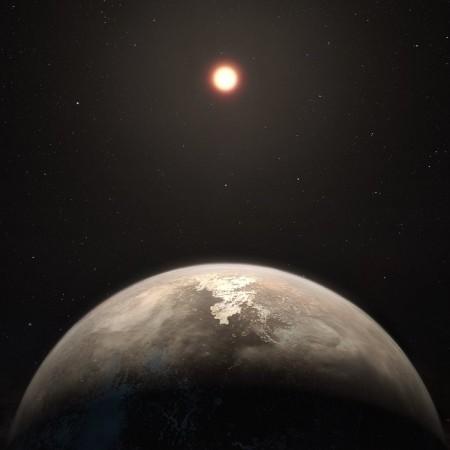
Scientists are discovering and uncovering so many things everyday that it is possible to lose track of what is happening in the world around us. For those who missed out on some of the most interesting science news from last week, here is a quick rundown of the top 5.
Sandstorm the size of North America hits Mars
NASA's Opportunity rover is on Mars, working well over its intended mission duration, and since 2004 has been slowly exploring the red planet. In all the time it has spent out there, the rover has weathered a few storms of its own, but the most recent one threatens to freeze Opportunity to death.
The storm has been estimated to be about the size of continental North America. According to NASA, "a dark, perpetual night has settled over the rover's location," and without the Sun's energy to keep it warm, the Opportunity rover could die.
Russia plans to build a giant laser to zap space debris
The low-Earth orbit has become the unlikely host of a lot of debris that is threatening satellites and space stations. Everything, from small flecks of paint to ball-sized pieces of metal move at an exceptional speed in space, posing a huge threat to orbiting systems.
Russia's idea to get rid of this debris is to build giant lasers mounted on telescopes to burn out debris in space from Earth in a process called "laser ablation". Of the 500,000 pieces of orbital debris, about 20,000 are larger than a cricket ball, reports NASA.
Study reveals humans are getting stupider with new generations
Humans are considered to be the smartest creatures on the planet, by, well, humans. But is human intelligence actually dropping as the years progress? A new study by Norwegian researchers found that for every generation, IQ scores are dropping by about 7 points on an average.
The "Flynn Effect" is the time period post-WWII where access to better medicine and education made people a lot smarter than their parents has come to an end, this new study found. However, access to information is at a scale that is higher than in any given point of time in human history. It can be argued that people know about more things than humans did before, though the question of intelligence still remains.
Collapsing Antarctic ice shelf looks like it is not going to get better
A lot of news about Antarctica came out last week. Several studies highlighted the extent to which the ice at the south pole is melting and how it will impact global sea levels. One such study found that Antarctic ice shelves have suffered through rapid calving due to massive waves from the ocean, causing extensive ice loss.
Another study showed how Antarctic shelves are melting twice as fast when compared to the last decade resulting in a 6-inch rise in global sea levels by 2100. A separate study found the exact impact on the US alone which was found to be quite devastating. In fact, the study found that the US will suffer more from Antarctic ice melting than from the ice sheets in Greenland.
Images of a supermassive black hole consuming a star for 10 years
Black holes eat stars and get bigger, that is something that is well known, but what happens when the energy of a star that is a lot bigger than the Sun gets trapped in a supermassive black hole and is shredded over a period of ten years?
No one knew till a team of astronomers managed to capture the violent eruptions of a star dying at the hands of a black hole and as expected, the scene is quite dramatic.
Other news that did not make this list:
- Stephen Hawking's voice and a musical interlude were beamed from the Earth directly into the nearest black hole
- Moons of exoplanets could be not only habitable but actually better for humans than Earth
- While it is easy to get to Mars, coming back might not be as easy, says NASA.















